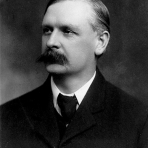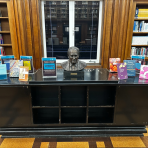We are delighted to announce the publication of the 3rd edition of A Classification for Medical and Veterinary Libraries by Cyril Cuthbert Barnard, revised by Eloise Carpenter. This is also the first book published by LSHTM Press.

Barnard, CC 2024, A classification for medical and veterinary libraries, rev. E Carpenter, LSHTM Press, London.
DOI: https://doi.org/10.56920/lshtmp-1.
License: CC-BY-NC 4.0
Preface to the third edition copied below:
In 1936, Cyril Cuthbert Barnard (1894-1959) published the first edition of his Classification for Medical and Veterinary Libraries. Barnard was the first professional librarian at the London School of Hygiene & Tropical Medicine (LSHTM), in post between 1921-1959. While selecting resources, it had soon become apparent to Barnard that the classification schemes available at the time were not suitable for the specialist focus of LSHTM. Barnard devised his own classification scheme focusing on tropical medicine and public health, revising it in 1955 to accommodate new and emerging subjects. The LSHTM Library, together with other academic libraries and health organisations, has used the scheme ever since.
During the summer of 2019, the Library decided to embark on a project to review and update Barnard’s classification scheme. There were several motivations for this long overdue revision. Classifying twenty first century resources with a scheme based in the 1950s was proving a frustrating experience for Library staff, but also more importantly for readers trying to locate resources. Advances in science and medical knowledge meant some classifications placed subjects in classes they no longer belonged in. This was not only inaccurate but unhelpful for readers browsing the Library shelves or trying to find similar items in a catalogue search. Many subjects being taught and researched today had no class mark in the schedules so local amendments abounded. Several subjects displayed the prominence that they had enjoyed in the post-war years with lengthy lists of class marks no longer relevant for contemporary research. The resulting medley of class marks was increasingly unsatisfactory and brought into sharp focus with the introduction of an annual collection evaluation exercise and periodic mapping exercise. Correct and meaningful reporting on subjects contained in the Library’s collections and mapping them to research priorities and teaching interests of LSHTM relies on effective analysis of metadata contained in catalogue records. Accurate placing of subjects within the schedules is fundamental for enabling access to resources and for ensuring productive collection management.
When Barnard amended his scheme in the 1950s Britain was experiencing unprecedented social and political change. In addition to initiatives in health, welfare and education provision, Britain was faced with the ‘end of Empire’ and the shifting balance of power from colonialism to independence. However, the withdrawal of colonial power did not lead to a decolonisation of thought and practice. The legacy of colonial and imperial history remained embedded in British society, including universities and their libraries. The coloniality of knowledge and prominence given to Western thought reproduced itself in the content of library collections and library practices. Traditionally the nature of library collections has been to control and classify resources resulting in cataloguing and classification conventions which promote Western thought and knowledge structures: subject headings rooted in a racist and sexist past, colonial taxonomies, language that appropriates or ignores the ‘other’ so perpetuating ideas of inferiority and superiority, and the geo-politicisation of knowledge. The bias inherent in the language and structure of the scheme is repeated in the search hierarchies and language of library discovery tools. Decolonising Barnard’s classification scheme was therefore essential as part of the revision process, and in supporting the aim of LSHTM in decolonising its curriculum and pedagogy.
This revised edition provides a classification scheme which meets modern library and information services collections requirements and reflects current research and teaching priorities in public and global health. The 1950s language of inequality, oppression and societal power relations has been replaced by one which promotes equality, diversity and inclusion. This edition is also the first one to be published as open access. Barnard believed no library could be self-sufficient and strongly advocated for the sharing of knowledge and resources. Throughout his career, Barnard supported national and international collaboration between libraries and librarians. In our modern global society, libraries and open access publishing are recognised as key players for achieving the United Nation’s Sustainable Development Goals by providing improved access to information and knowledge. The Barnard classification scheme supports these objectives. Open access publication enables the scheme to be freely available to as many libraries and organisations as possible and ultimately contribute to a more sustainable future.
Eloise Carpenter, Collection Services Manager, LSHTM, 2024
For further information about the scheme, email library@lshtm.ac.uk










